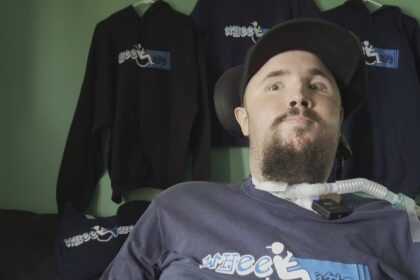British ColumbiaThe B.C. government has proposed changes to the province’s Employment Standards Act to allow up to 27 weeks of unpaid leave each year for people facing a “catastrophic” illness or injury.Proposed changes would allow people undergoing chemotherapy to keep their job during treatment, David Eby saysBrenna Owen · The Canadian Press · Posted: Oct 20, 2025 9:06 PM EDT | Last Updated: 1 hour agoB.C. Labour Minister Jennifer Whiteside and Premier David Eby, seen here in January 2024, said that the government intends to add unpaid leave for those with a ‘catastrophic’ illness or injury. (Nav Rahi/CBC)The B.C. government has proposed changes to the province’s Employment Standards Act to allow up to 27 weeks of unpaid leave each year for people facing a “catastrophic” illness or injury.Premier David Eby told a news conference in Victoria that the change would take effect this fall if the bill is passed by his New Democrat majority government.The leave would ensure people undergoing treatment such as chemotherapy could take the time they need without being forced to choose between focusing on their health or their job, Eby said on Monday.”It’s hard to imagine anything more challenging or awful than facing a diagnosis of a major, catastrophic health issue like this,” Eby said. “But knowing your job will be there when you’re completing treatment, when you’re able to return to employment, it’s just one less thing for people to have to worry about.”Labour Minister Jennifer Whiteside said the proposal would alleviate an unnecessary burden for those undergoing treatment. (Ben Nelms/CBC)Labour Minister Jennifer Whiteside joined Eby, saying workers deserve to return to their jobs once their health-care providers confirm they’re ready.Whiteside said B.C.’s Human Rights Code prohibits discrimination on the basis of disability, but the current employment standards law does not include provisions to protect the jobs of people unable to work due to a long-term illness or injury.The proposed changes would ensure the protection in the Human Rights Code is built in to the legislation, the minister said.”For people facing a difficult diagnosis and maybe well a life-altering situation, whether it’s short term or long term, the certainty of knowing that their job will be there for them provides relief,” Whiteside told the news conference.”It alleviates an unnecessary burden on their journey to recovery,” she said.Intimate partner violence victims also covered: ministerWhiteside said survivors of intimate partner violence, many of whom show signs and symptoms of traumatic brain injury, would also be covered by the law.”We know that 90 per cent of intimate partner violence cases reported to police involve survivors ages 15 to 54 in their prime working years,” she said.”For them, the guarantee of job protection may help invite survivors to feel safe in seeking services for their recovery.”WATCH | Advocates call for action on intimate partner violence:Advocates call for action on intimate partner violenceB.C. has seen a spate of intimate partner violence in the last week, two of which involved people in their 60s and up. As Johna Baylon reports, intimate partner violence has been on the rise among older adults, and advocates are calling for something to be done.More than 31,000 people are diagnosed with cancer each year in B.C., Whiteside noted.”It’s vital that we provide this important assurance to workers and their families,” Whiteside said of the proposed changes.She said the changes would bring B.C.’s legislation in line with standards already in place in other Canadian jurisdictions, including Manitoba, Ontario and Quebec, as well as federally-regulated industries and workplaces.The protection would apply to all workers covered by the Employment Standards Act who have a serious personal illness or injury and who are unable to work for at least seven consecutive days, the Ministry of Labour said in a statement.The leave would not have to be taken at once and could be broken up throughout the year.To access the leave, workers would have to obtain a certificate from a doctor or nurse practitioner saying they are unable to work due to medical reasons.
B.C. to add unpaid leave for ‘catastrophic’ illness, injury: premier











